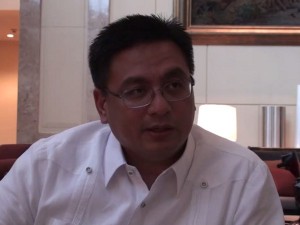MANILA, Philippines—Customs officials from Association of Southeast Asian Nations members are in Manila for the 15th Meeting of the Asean Customs Procedures and Trade Facilitation Working Group at a Pasay City hotel. Their host is the Philippines’ Bureau of Customs (BOC).
There was a hitch, however, during the opening day on Tuesday of the three-day meet when organizers failed to provide the media with conference materials or press kits.
Asked why, BOC staff told the Inquirer they were “not authorized to provide the media with any conference-related information,” as well as background data about the Asean customs working group.
“The information we have is intended for Asean delegates only,” said a woman BOC employee.
Sought for clarification, their supervisor, collector John Simon, appeared to be clueless about the functions of an event secretariat. Like his staff, he did not respond to reporters’ requests for conference materials.
But Glenda Hekman, Commissioner Ruffy Biazon’s aide, came to the rescue, hastily gathering up meeting papers, including the schedule of activities, and handing them over to reporters.
One of the documents said only eight of the 10 Asean member countries were represented at the conference.
The 23 delegates present came from Singapore (4), Brunei (2), Cambodia (2), Indonesia (2), Malaysia (2), Thailand (3), Vietnam (1), Philippines (3) and the Asean secretariat (4).
Laos and Myanmar did not send representatives.
When contacted, Biazon said the Asean meeting “aims to craft the implementing details for the 2012 Asean Agreement of Customs, which is the framework for the establishment of the Asean Economic Community by 2015. The agreement lays down the principles and parameters of the integration of customs procedures to enhance trade facilitation among Asean member states.”
“This working group will discuss the specifics of the implementation and propose the rules and regulations to be adopted by the Asean countries,” he told the Inquirer.
In a statement, Biazon noted that the Asean Customs agreement, signed on March 30, 2012, in Singapore, would not only help solve the Philippines’ smuggling problem, “it will have a great impact on the country’s economy.”
He said “establishing the blueprint for the Strategic Plans for Customs Development, which is based on the 2012 Asean Agreement, shall help facilitate the realization of the Asean single market and production base that would be characterized by the free flow of goods, services, investment, skilled labor and capital.”
“We need to be on board with this global economic trend. Otherwise, we will be left behind, in the doldrums of economic stagnation,” Biazon added.
